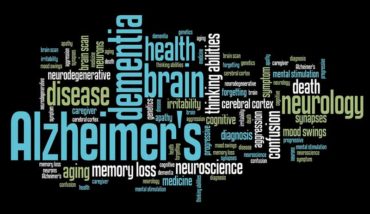The problem with the earliest stages of Alzheimer’s disease is that they are very subtle.
At this point, there may even be some denial about having this affliction, so conflicts could arise.
Still, people in the early Alzheimer’s disease stages may be able to retain some independence for years in the future.
What Is Early-Stage Alzheimer’s Disease?
Early-stage Alzheimer’s disease simply describes people who have been diagnosed with the mild, first symptoms of this disease.
At this point, the individual may only suffer from mild changes in his or her cognitive abilities and memory.
People who only have a superficial relationship with the individual might not even notice much difference. At this point, caregivers may get to behave more like partners than true supervisors.
These early-stage caregivers need to take a supporting and caring role, but also, let the afflicted person retain as much independence as possible.
Some of the main things that early-stage Alzheimer’s disease patients may need are help with taking medication on time, calendars for appointments, and help organizing bills that need to get paid. The more these people can stay engaged, the better off they will be.

As much as possible, it is wise to encourage them to participate in their favorite activities. Some studies suggest that the longer an Alzheimer’s sufferer can feel important and engaged, the longer they may be able to stave off more severe symptoms.
It might be difficult to know who to tell about this disease. It is better to be more open with other loved ones.
However, there is some social stigma associated with Alzheimer’s, so deciding how much to tell other people can be tough.
Of course, caregivers and patients may have to spend some time thinking about the future. Some things to work on are legal and financial arrangements.
For example, this is a good time to make sure that a will and other documents have been prepared. After the disease progresses further, the patient will not be able to help.
What To Do If You Suspect Early-Stage Alzheimer’s Disease?
The first step to managing Alzheimer’s disease is to get a doctor’s diagnosis. Other diseases may mimic Alzheimer’s but need different treatments.
For example, an injury or minor stroke may also damage memory or cognitive abilities. However, in some cases, the negative effects may be temporary.
The sad truth is that there is no cure for Alzheimer’s.
Also, some people just have mild symptoms for years, but others get worse very quickly. The best time to prepare for the future is when the afflicted individual still can serve as an active partner.
In any case, early treatment can also help stave off later stages of this disease, so patients and caregivers should explore options as early as possible.
There are some new medications and therapies that have proven beneficial and everybody can hope that the next big break will be coming down the pipeline soon.
Caregivers May Also Need Support
While caregivers offer support to their loved ones, they may also need support.
The Alzheimer’s Association is a nonprofit that offers emotional support, a community of caregivers online, and many other sources. It might also be a good time to look into respite care to give the caregiver time off to handle their responsibilities or just enjoy a break.
It is not easy to care for a person with Alzheimer’s Disease. However, caregivers need to try to focus on the positives.
It is also helpful if they can explore any local resources that are available to help. The more caregivers learn about the disease and the support system, the better off they will be.
Provided by Miami Home Care Services for seniors, dedicated to providing premium in-home care for the elderly.






